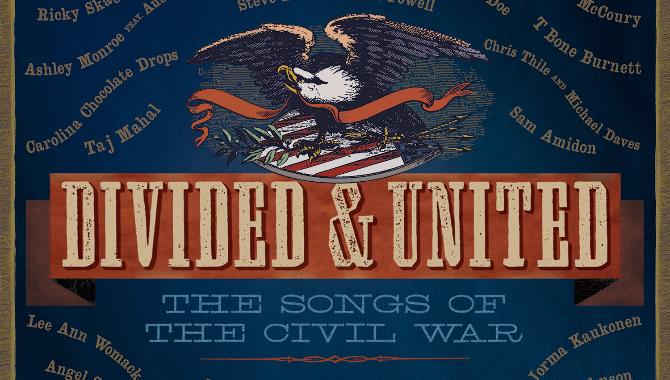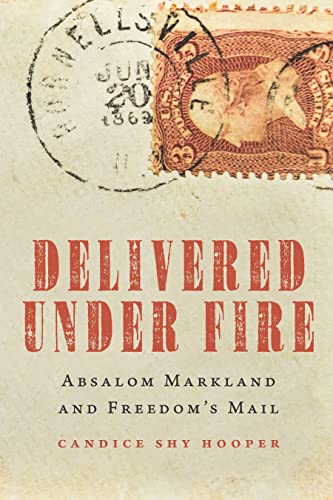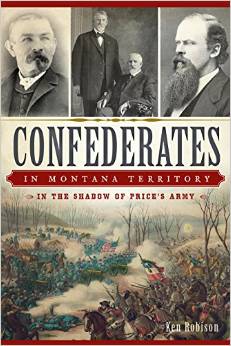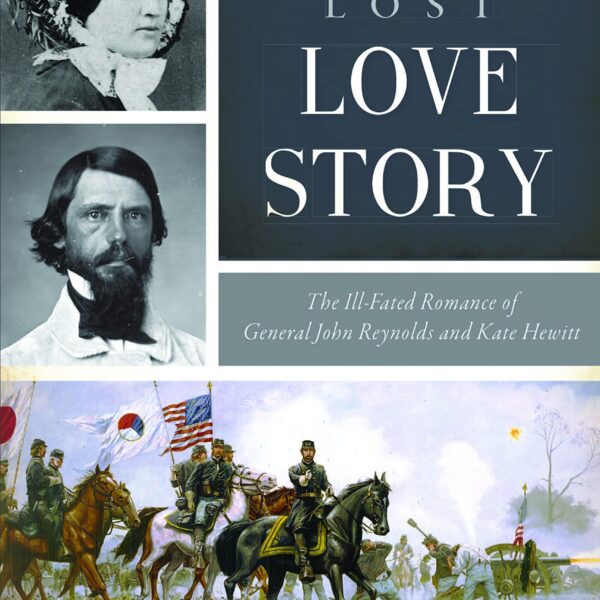Divided & United: The Songs of the Civil War produced by Randall Poster. ATO Records. Release: November 5, 2013.
 Twenty-three years since the first airing of Ken Burns’s PBS documentary, The Civil War, and its accompanying multi-artist soundtrack, we now have another stirring collection of traditional songs from the Civil War. Divided & United: The Songs of the Civil War is a double disc collection of thirty-two songs by artists handpicked by film music supervisor and producer Randall Poster. The Nashville connections Poster made while working on the movie Country Strong (2010) inspired him to produce the collection to commemorate the 150th anniversary of the Civil War.
Twenty-three years since the first airing of Ken Burns’s PBS documentary, The Civil War, and its accompanying multi-artist soundtrack, we now have another stirring collection of traditional songs from the Civil War. Divided & United: The Songs of the Civil War is a double disc collection of thirty-two songs by artists handpicked by film music supervisor and producer Randall Poster. The Nashville connections Poster made while working on the movie Country Strong (2010) inspired him to produce the collection to commemorate the 150th anniversary of the Civil War.
With more film and television music credits than you can shake a stick at (Boardwalk Empire, Mildred Pierce, Love and Other Drugs—just to name a few others), Poster was well-poised to undertake such a project involving the selection of appropriate sheet music from a particular historical period that predated commercial recordings. For extra back-up, he tapped highly acclaimed acoustic guitarist and multi-instrumentalist Bryan Sutton, who also helped Poster to research and pick the songs.
Poster brought together younger string bands, bluegrass, and country artists as well as some of Nashville’s icons, including Loretta Lynn, who kicks off the rootsy CD with a haunting interpretation of “Take Your Gun and Go, John.” Lynn’s powerful vocals, backed by Sutton’s banjo and Matt Combs’ fiddle, give the pro-Union song written in 1862 by Hiram T. Merrill a sparse, chilling quality and a rawboned southern feel. Scholars of the Civil War homefront will especially appreciate the selection of this as the opening song about a farmer’s wife willing to assume the hardships at home while her husband sets off for war.
This outstanding CD is steeped in American bluegrass and folk traditions. With his customary high lonesome voice, bluegrass icon Ralph Stanley sings “The Vacant Chair,” which in late 1861 commemorated a Massachusetts soldier killed at the Battle of Bull Run. “Lorena,” a mournful ballad with northern roots in the antebellum period, was reportedly popular among Confederate as well as Union soldiers. International Bluegrass Hall of Famer Del McCoury’s singular lead vocals and guitar, backed by sons Ronnie (lead and harmony vocals) and Robbie (banjo), infuse the love song, penned in 1856 by Rev. Henry D. L. Webster, with feelings of longing that could tug at the heartstrings of Johnny Rebs and Billy Yanks alike who pined for their wives and girlfriends back home. In Confederate camps, generals reportedly banned the song, fearing that the melody and heart-wrenching lyrics would nurture pangs of homesickness and contribute to rising desertion rates.
After hearing Waylon Jennings sing “Rebel Soldier” on the soundtrack to Ken Burns’ Civil War documentary for the first time, I never thought any other version of the Southern Appalachian folk song could equal it. Granted, Jamey Johnson’s moving rendition of the song on Divided & United may not quite equal it in the view of Waylon’s fans (like myself), but it gets mighty close. With instrumentation by Mickey Raphael (harmonica), Dan Tyminski (fiddle, acoustic guitar, and background vocals), and Jeff Taylor (Pennywhistle), Johnson’s deep, haunting vocals capture the intense loneliness, pain, and sorrow of a Confederate soldier longing for his sweetheart and family.
Ranging from love ballads, parlor songs, and rousing marching tunes to slave spirituals and songs performed by blackface minstrels, Divided & United includes some of the most popular as well as a few obscure songs of the period. Stephen Foster penned three of the songs: “Hard Times” (sung by Chris Hillman); “Old Folks at Home/The Girl I Left Behind Me” (performed as an instrumental by Noam Pikelny & David Grisman); and the classic “Beautiful Dreamer” (sung by Cowboy Jack Clement). Foster and George Cooper co-wrote “Dear Old Flag,” an 1863 song about the final words of a fatally wounded drummer boy at Gettysburg (sung by Vince Gill).
The Carolina Chocolate Drops, a young string-band from the Piedmont area of North Carolina, provide a fresh, exciting interpretation of two songs by popular composers of the Civil War era. In what amounts to a medley, the band performs “Day of Liberty,” written in 1862 by George F. Root (aka G. Frederich Wurzel), grafting onto it recitations from “Wake Nicodemus,” which Henry Clay Work wrote in 1864. The rousing track stirs abolitionist sentiment by putting a human face on a slave who wished to be awakened when the day of liberty arrived.
Work, an abolitionist, Unionist, and one of the era’s most prolific songwriters, wrote “Marching Through Georgia” in 1865. Old Crow Medicine Show performs a toe-tapping version of it on Divided & United. The spirited, triumphant song, which was not published until after the war, cheers Union soldiers under General William T. Sherman as they cut a swath across the state to lay siege to Savannah.
In my favorite song on the CD, Pokey LaFarge performs another of Work’s songs, “Kingdom Come,” an up-tempo number written for the minstrel stage in 1862 before the Emancipation Proclamation. The triumphal song about a world turned upside down in the year of Jubilo pokes fun at slave masters and their overseers. In a similar vein, the legendary blues artist Taj Mahal contributes a stirring version of “Down by the Riverside,” a spiritual adopted by African American slaves as a work song.
Divided & United includes a thoughtful essay by distinguished scholar Sean Wilentz, the Sidney and Ruth Lapidus Professor of History at Princeton University. As Wilentz points out, no aspect of American life, including popular culture, went unscathed by the war. Some of the new songs written during the war, including older ones with new lyrics to fit the wartime context, “stoked patriotic fervor and recorded terrible battles, while they registered the range of feelings from anguish to triumphant glee.” In the case of older songs performed on the minstrel stage, for example, they took on new meaning in the context of the war.
“Dixie,” sung by Karen Elson and the Secret Sisters, is perhaps the best example of a song transformed and given new significance by the conflict. Although rooted in northern blackface minstrel shows of the 1850s, the song about a freed slave longing for the plantation where he was born resonated with southern soldiers during the war and morphed into an anthem and rallying cry for the Confederacy. Together with beautiful harmonies by Laura and Lydia Rogers, Elson’s understated, hushed vocals imbue the song with acute nostalgia and a deep, aching sense of loss for a “Lost Cause.”
There is not a single throwaway song on the entire CD, which also features artists Ricky Skaggs (“Two Soldiers”); Lee Ann Womack (“The Legend of the Rebel Soldier”); Joe Henry (“Aura Lee”); Sam Amidon (“Wildwood Flower”); Bryan Sutton (“Hell’s Broke Loose in Georgia” and “Battle Cry of Freedom”); Steve Earle and Dirk Powell (“Just Before the Battle, Mother/Farewell Mother”); Shovels & Rope (“The Fall of Charleston”); John Doe (“Tenting on the Old Campground”); Chris Thile and Michael Daves (“Richmond is a Hard Road to Travel”); Chris Stapleton (“Two Brothers”); Norman Blake, Nancy Blake, and James Bryan (“The Faded Coat of Blue”); Stuart Duncan featuring Dolly Parton (“Listen to the Mockingbird”); Jorma Kaukonen (“The Mermaid Song”); The Tennessee Mafia Jug Band (“Secesh”); T. Bone Burnett (The Battle of Antietam”); Ashley Monroe featuring Aubrey Haynie (“Pretty Saro”); AA Bondy (“Johnny Has Gone for a Soldier”); and Angel Snow (“When Johnny Comes Marching Home”). How fitting that Cowboy Jack Clement’s absolutely beautiful, lonesome rendition of “Beautiful Dreamer” is the final song on the collection, given his death just a few months before its release.
Liner notes provide a short description of each song’s origins, and John Cohen, a musicologist, filmmaker, and founding member of the New Lost City Ramblers, also contributes a brief essay. He emphasizes that sentimentality substitutes for any critique of the war in these songs. We hear no voices of dissent. “Instead,” he makes clear, “we get music that is sentimental and close to the heart with little regard for the issues, intellect or concept of the war or why it is being fought between families, dividing brothers between the South and North.”
Divided & United does have an explicit political as well as musical purpose. In the words of Cohen, it “aspires to erase the legacy of segregation and through music seeks reconciliation instead in order to celebrate a great musical heritage of America born in pain, war and prejudice.” Lofty political aspirations, given today’s bitter Red State/Blue State political divisions! These divisions have deepened since President Barack Obama’s election and reelection. Even talk of “secession” has re-entered the contemporary political discourse as hatred of the federal government and our first African-American president has intensified, particularly in former Confederate states.
Divided & United likely will fail to achieve its noble goal of healing and political reconciliation, but it treats us to brilliant musical renditions of songs from the era of the Civil War. The interpretations we hear on the CD magically make the past sound like the present, and the present sound like the past—no easy creative task, to say the least. Unless I miss my guess, this traditional folk album has Grammy Award written all over it.
Gregg Andrews is a Distinguished Professor Emeritus of History at Texas State University and “Doctor G” of Doctor G and the Mudcats.




